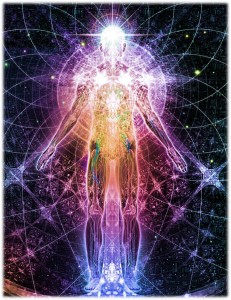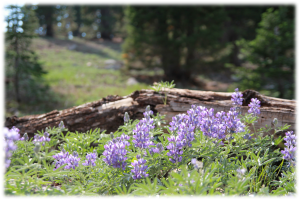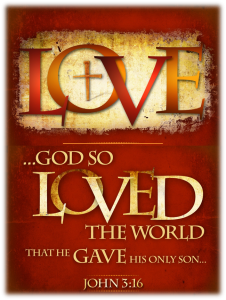SONG OF SONGS 1: Dedicated to Love
There’s five Books of Poetry in the Jewish Scriptures but only one book, in the whole collection of 66 books of the Creator God’s epic storyline, that’s dedicated exclusively to marital love. This is the last of the poetry books in my Breadcrumbs, and it’s also written by King Solomon. But as is the pattern with all parts of our Maker’s Handbook, we need to ask: (i) Who wrote it and what were they thinking or hoping from their writing? (ii) Who was it originally written for and what did they hear or understand from it? And finally (iii) What can I learn today in light of the above.
 This is King Solomon’s song and it’s dedicated to love for his bride. It’s an over-the-top rendition of “eros” love at its height, just before marriage. He’s in-love and he’s making that known in a sort of daydream Play about what she’d say, what their friends would say, and what he’d say.
This is King Solomon’s song and it’s dedicated to love for his bride. It’s an over-the-top rendition of “eros” love at its height, just before marriage. He’s in-love and he’s making that known in a sort of daydream Play about what she’d say, what their friends would say, and what he’d say.
If Solomon gave his song to her, she’d have the cultural understanding to receive it. Then she’d respond in love, like any other girl would today. But because this private song found its way into the Creator God’s Epic Storyline, it has an eternal and prophetic quality. Eternal means that it goes further back than just about Solomon’s love affair. The words also stretches forward in time not just to be relevant today, but they’re significant, in some way, for what the Creator God is expressing about Himself and our eternal future.
If I look back in time, Solomon’s song reaches back in time and space to the first couple – the male and female image-bearers of the Creator God known to us as Adam and Eve. Besides cultivating order in every situation where they ruled with their Maker’s authority, they would together bear more LIFE.[a] So, we weren’t just created in God’s Likeness as His image-bearers, we’re to be LIFE-bearers like Him – creating more image-bearers. The female, who had been given the greater portion as the “mother of all the living”[b], was created in such a way that she was unable to be who she was designed to be, without her “other half”. But how is this connected in any way to Solomon’s Song of Songs?
 The Lord the Giver of Life “split the atom” and entrusted the two halves of His image with accomplishing His job – the creation of new life and the reproduction of His own image on earth. This was His Master Plan and (weirdly enough) the only thing in all creation that has so far gone wrong. All other things in Genesis 1 are still ticking over and working wonderfully, just as the Creator created them to be. From the beginning of the story, however, the main life-bearer was attacked. Since then, God’s image-bearers have been at odds with each other.
The Lord the Giver of Life “split the atom” and entrusted the two halves of His image with accomplishing His job – the creation of new life and the reproduction of His own image on earth. This was His Master Plan and (weirdly enough) the only thing in all creation that has so far gone wrong. All other things in Genesis 1 are still ticking over and working wonderfully, just as the Creator created them to be. From the beginning of the story, however, the main life-bearer was attacked. Since then, God’s image-bearers have been at odds with each other.
This came first in blind, unthinking submission[c] that was closely followed up with blame at the beginning of the story.[d] Unfortunately, the pattern hasn’t changed much at all, even though we’ve been told that we’ve “evolved”!
In the millenniums since, the relationship between the male image-bearer of the Living God and the female image-bearer, has deteriorated. Rather than being like our Maker, we now have the global sex trade today, extra-marital affairs, multiple marriages and partners, abandonment of the original marriage covenant commitment[e], perversion and promiscuity, sex changes, abuse of children, and anything else you can think of to add to the list. All of the above stops the male and female image-bearers becoming “one flesh”, and together reflecting the dual-sided image of God into their environment – our Creator’s plan from the beginning.
But why such an erotic book? Surely just some basic training would be enough…
“May he kiss me with the kisses of his mouth! For your love is better than wine. Your oils have a pleasing fragrance, Your name is like purified oil; therefore the maidens love you. Draw me after you and let us run together! The king has brought me into his chambers.” [v2-4]
Seriously…is this a religious book or what?!
 Like a Shakespearean Play (or like any deep poetry that’s quoted and studied in universities for centuries), there are many layers. Just as the Lord God formed mankind from the dust of the ground, then breathed into his nostrils the breath of life so that man became a living being, all scripture is God breathed (inspired by God) and profitable for teaching, for reproof, for correction, and for training in righteousness.[f]
Like a Shakespearean Play (or like any deep poetry that’s quoted and studied in universities for centuries), there are many layers. Just as the Lord God formed mankind from the dust of the ground, then breathed into his nostrils the breath of life so that man became a living being, all scripture is God breathed (inspired by God) and profitable for teaching, for reproof, for correction, and for training in righteousness.[f]
So, if I look forward and contemplate the prophetic qualities of my Maker’s Handbook when reading this song, I can’t help but believe that there’s a prophetic (future yet-to-be-fulfilled)element to it, and it can’t just be about the physical world of male and female relationships. If it is a message from the Creator God to us, it has to also be about our relationship with our Maker who created us to be like Him. He is the “bridegroom” in the story, the angels are His “friends”, and Believers are the “bride”. If this is a poetic rendition of our relationship with our Maker – just as the Book of Hosea showed metaphorically – then may He kiss me with the kisses of His mouth (i.e. give me “the kiss of life”), not just breathing mortal life into my lungs, to get me going in the first place, but giving me the sustaining life needed from His Holy Spirit for Eternity.[g]
His love is not just better than wine, it’s better than life! King David of Israel put it this way…
“You, God, are my God, earnestly I seek you; I thirst for you, my whole being longs for you, in a dry and parched land where there is no water. Because your love is better than life, my lips will glorify you. I will praise you as long as I live, and in your name I will lift up my hands.” [Psalm 63:1-4]
His oils have a pleasing fragrance. His Name is purified oil. The Ancient Prophet Hosea gave this message from the Creator God for His loved ones: “I will heal their waywardness and love them freely, for my anger has turned away from them, I’ll be like the dew to my people.”  Then, speaking of His right arm – the One who carries His Name[h] – He said: “He’ll blossom like a lily. Like a cedar of Lebanon He’ll send down his roots; His young shoots will grow. His splendour will be like an olive tree, His fragrance like a cedar of Lebanon.” Speaking of Himself He said: “I am like a flourishing juniper; your fruitfulness comes from Me.” [Hosea 6:4-8] Reading stuff like this makes me want to sit back in my chair and breathe deeply in my spirit. I can almost smell the fragrance in my Maker on the words He speaks.
Then, speaking of His right arm – the One who carries His Name[h] – He said: “He’ll blossom like a lily. Like a cedar of Lebanon He’ll send down his roots; His young shoots will grow. His splendour will be like an olive tree, His fragrance like a cedar of Lebanon.” Speaking of Himself He said: “I am like a flourishing juniper; your fruitfulness comes from Me.” [Hosea 6:4-8] Reading stuff like this makes me want to sit back in my chair and breathe deeply in my spirit. I can almost smell the fragrance in my Maker on the words He speaks.
King David also spoke of the Creator God and His right-hand man – the One who became “purified oil” – in this way:
“Your throne, O God, will last for ever and ever; a scepter of justice will be the scepter of Your kingdom. You love righteousness and hate wickedness; therefore God, Your God, has set You above Your companions by anointing you with the oil of joy. All your robes are fragrant with myrrh and aloes and cassia…” [Psalm 45:6-8a]
Therefore, like the maidens in King Solomon’s song [v3], I too will love Him. Speaking a message directly from the Creator God, Isaiah the Prophet put it this way:
“I delight greatly in the Lord; my soul rejoices in my God. For He’s clothed me with garments of salvation and arrayed me in a robe of His righteousness, as a bridegroom adorns his head like a priest, and as a bride adorns herself with her jewels.” [Isaiah 61:10] “As a young man marries a young woman, so will your Builder marry you; as a bridegroom rejoices over his bride, so will your God rejoice over you.” [Isaiah 62:5]
So, when we woke to find that our only son had passed away, suddenly, unexpectedly, and without a medical reason why, it was as if he’d eloped. He’d come of age and ran away to His Father’s Kingdom, and he didn’t need my permission to do it! Jesus describe this sort of thing happening when He predicted that “…two men will be in the field; one will be taken and the other left. Two women will be grinding with a hand mill; one will be taken and the other left.”[i] Therefore, I too will want to “run away with Him into His chamber” – the place where my King resides.[j]
So it isn’t at all surprising that the final book in the  Creator God’s epic storyline is talking about a bridegroom, a marriage feast of the Lamb[k], and a city “prepared like a bride”.[l] But what I’ve noticed this morning, is that I’ve only mentioned four lines from this ancient song, and it’s inspired thoughts in me from Genesis to Revelation – from the beginning of the Creator God’s epic storyline to the end of it! Surely this isn’t just coincidence. It’s a typical response when contemplating any heart-felt connection with our Father God who’s only ever been 100% dedicated in His 100% perfect love for the whole world who carry the image of Himself.
Creator God’s epic storyline is talking about a bridegroom, a marriage feast of the Lamb[k], and a city “prepared like a bride”.[l] But what I’ve noticed this morning, is that I’ve only mentioned four lines from this ancient song, and it’s inspired thoughts in me from Genesis to Revelation – from the beginning of the Creator God’s epic storyline to the end of it! Surely this isn’t just coincidence. It’s a typical response when contemplating any heart-felt connection with our Father God who’s only ever been 100% dedicated in His 100% perfect love for the whole world who carry the image of Himself.
CLICK to return to today’s “Daily Breadcrumbs”
[a] Genesis 1:26-28
[b] Genesis 3:20
[c] Genesis 3:6
[d] Genesis 3:12-13
[e] Genesis 2:23-24
[f] 2 Timothy 3:16
[g] Joel 2:28-29
[h] Exodus 23:20-21
[i] Matthew 24:40-41
[j] Psalm 19:4b-5
[k] Revelation 19:7-9
[l] Revelation 21:9-11